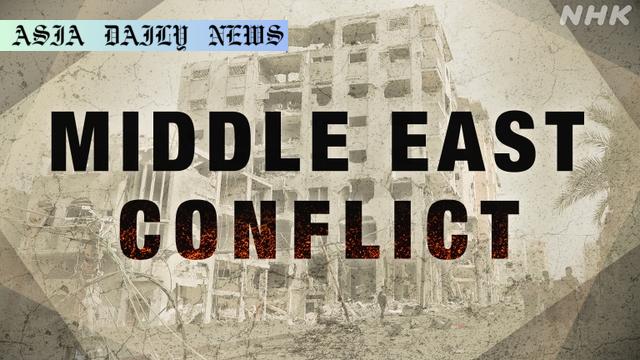Rafah: IDF admits error in killing 15 medics and Red Crescent workers in Gaza, citing professional failures and regret.

Investigation Findings Reveal Deadly Errors
The Israeli Defense Force (IDF) has released findings regarding the tragic incident in Rafah, Gaza, that resulted in the deaths of 15 emergency workers earlier this year. On March 23, international humanitarian groups, including the United Nations and the Palestine Red Crescent Society, reported a devastating attack in southern Gaza where ambulances carrying first responders and humanitarian personnel were fired upon by Israeli forces. This grave misstep culminated in the loss of 15 lives, including eight Red Crescent responders and a United Nations employee. While on duty aiding civilians, these medics became unintentional victims of a chain of operational failures and misjudgments.
Operational Flaws: Misidentification of Threats
The IDF’s investigation uncovered critical professional errors leading to this tragedy. The deputy battalion commander, under the constraints of poor night visibility, mistakenly identified ambulances as vehicles associated with Hamas militants. This misconception prompted the commander to issue an order to strike the convoy, inadvertently targeting humanitarian workers. It wasn’t until later that the error came to light, revealing that the vehicles belonged to rescue teams.
In its assessment, the IDF noted “several professional failures and breaches of orders” within the chain of command, holding the deputy commander accountable for the error. Prompt disciplinary measures have been taken, including the dismissal of the commander from his position. This incident underscores severe lapses in communication, training, and operational judgment that are now under review by the IDF.
Global Condemnation and Expressions of Regret
Major international organizations, including the United Nations and the International Federation of Red Cross and Red Crescent Societies (IFRC), have voiced strong condemnation of the attack on humanitarian entities. A statement released by the International Committee of the Red Cross (ICRC) expressed its shock and disapproval, emphasizing how medics lost their lives while performing their irreplaceable duties. The UN also criticized the incident, urging for measures to ensure the protection of emergency workers and civilians in conflict zones.
In response, the IDF issued a formal expression of regret for the casualties. The report expressed the military’s intention to learn from this grave mishap by reassessing operational protocols to minimize chances of similar incidents in the future. Acknowledging these mistakes, the IDF noted their ongoing commitment to improve and adhere to international humanitarian laws during their operations.
Humanitarian Implications and Calls for Accountability
Beyond the immediate details of the incident, the killing of 15 humanitarian workers raises broader questions about the safety and neutrality of medical personnel during armed conflicts. International law, particularly the Geneva Conventions, explicitly mandates the protection of medical personnel, vehicles, and facilities. This tragic event in Rafah not only highlights the devastating loss of life but also questions the systemic preparedness of forces involved in volatile regions like Gaza.
As global condemnation grows, advocacy groups are urging for independent probes to ascertain accountability and ensure fair compensation for the affected families. These groups argue that lessons learned must translate into actionable reforms to prevent harm to medical teams in conflict zones.
The Road Ahead: A Push for Reforms
While the IDF’s report marks an essential first step in diagnosing the errors that led to this tragic event, further actions are needed to rebuild trust and ensure accountability. Enhanced training for forces operating in areas with civilian and humanitarian traffic, stricter adherence to engagement rules, and improved technological assistance to detect targets are some solutions that may mitigate such incidents.
The global community must hold governments and armed forces accountable for ensuring the safety of medical workers and civilians in conflicts. The Rafah tragedy is not only a sobering glimpse into the dangers of misjudgments during warfare but also a wake-up call for implementing permanent safeguards in such high-stakes environments.
Commentary
Reflections on the Tragic Events in Rafah
The recent report on the Rafah incident is both a sobering reminder of the human cost of armed conflicts and a painful lesson on the importance of safeguarding humanitarian work. The devastating loss of 15 lives, including those of critical emergency workers and humanitarian personnel, is nothing short of a tragedy.
What makes this event even more jarring is the inadvertent nature of the killings. The IDF’s admission of errors, while commendable for the accountability it indicates, also underscores significant flaws in operational preparedness and decision-making. Misidentification of ambulances, vehicles that are globally recognized as symbols of neutrality and aid, reflects a breakdown not just in judgment but also in the tools and training employed by the military. Such missteps are not mere operational oversights; they have life-altering consequences for families and communities who rely on these medics for survival.
Humanitarian Consequences and Accountability
The international backlash against this incident is entirely justified. Medical personnel are protected under international law for very valid moral and ethical reasons. Their task is not political or militant; their purpose is to save human lives. The Rafah incident has shown how such ideals can be eroded when combat operations neglect the principle of distinction, which is central to humanitarian law. Accountability measures, both within the IDF and from global watchdogs, are crucial to restoring faith in conflict governance.
The Way Forward: Lessons Learned
Looking ahead, incidents like these must lead to systemic change. They should catalyze improvements in conflict engagement protocols, particularly in volatile regions like Gaza. The rapid dismissal of the deputy commander is a necessary step in addressing immediate accountability. However, the broader structural issues need attention—enhanced training mechanisms, real-time decision-making support, and robust protocols for verifying humanitarian identities should become non-negotiables in modern military operations.
Ultimately, the Rafah tragedy should serve as a rallying cry for greater emphasis on protecting human life during conflict. Life-saving professionals cannot function effectively without the basic assurance of safety. It is upon all of us—governments, global institutions, and civil society—to demand reforms and ensure such tragedies do not repeat.


